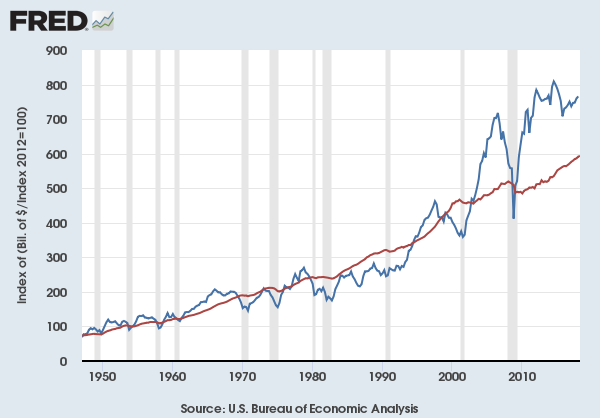Democracy Against Capitalism: Conclusion of the Conclusion
Index to all posts in this series.
My original plan for the multi-part conclusion was to show the differences between the analysis of Ellen Meiksins Wood in Democracy Against Capitalism and the views of Bruce Scott in Capitalism: Its Origins And Evolution As A System Of Governance. I quickly found a number of similarities in their views of capitalism and its dangers. I expected to find differences in their views of democracy, that Scott would edge away from Wood’s view that democracy is failing us, based primarily on what appears to be an early draft of Chapter 13 of his book. I was wrong. Scott also believes that democracy as practiced today is failing at the task of controlling the excesses of capitalism.
As evidence, this is from the very last paragraph of the epilogue:
This brief look at the role of the firm in a capitalist society suggests that achieving accountability for firms is a vital aspect of a successful, decentralized system of decision-making. At the same time, it suggests that achieving such accountability on a continuing basis as conditions change is anything but a simple task. As a result, market frameworks can be expected to be continually contested between the firms, the regulators, and other societal interests that are affected. We should expect that some measure of distortion is the rule rather than the exception.
That’s from page 639, so not really a brief look. Scott blames neoliberalism, though he doesn’t use that term. Instead, he argues with Milton Friedman’s Capitalism and Freedom throughout the first part of his book, so effectively that the reader cannot take Friedman’s neoliberalism seriously. In a scholarly work such as this, the following counts as invective.
A second view, and arguably a very influential one among US economists, was that capitalism is a self-regulating system based upon voluntary transactions among consenting adults. This view, which has drawn little benefit of any historical perspective, is perhaps best exemplified by Milton Friedman and the Chicago School. P. 12.
In Scott’s telling, the US chose to separate the economy from the rest of society, and turned over management of the economy to the private sector, subject only to rules enacted by the political arm. That led to frequent financial crises and then to the Great Depression. Scott sees the New Deal as the government’s response to unbridled capitalism, and bases his model on the interregnum.
But then he confronts the obvious: beginning in the 1970s the political arm wrecked the regulatory framework of laws, regulations and institutions that held capitalism under light but firm control. Without controls, capitalism now threatens to democracy itself as firms have once again become strong enough to control governments at all levels, just as they were from the 1870s through 1932. In his discussion of the Great Crash of 2008, he again criticizes neoliberalism, this time Alan Greenspan. According to Scott, Greenspan’s ideology has no basis in reality or values, and it caused damage to millions of Americans.
As to the impact on democracy, Scott says:
Democracy is premised on the notion of moral equality among individuals and the freedom of self-determination; inequalities beyond some limit become incongruous. Capitalism, on the other hand, is premised upon the notion of granting individuals economic freedoms to develop their talents and resources, as well as “the primary freedom of choice in the market place.” Though individuals are subject to governance through regulated forms of competition, those who excel in that competition receive higher rewards, which they are allowed to retain and build upon to achieve still further advantage. How can two systems based upon such differing premises manage to be mutually stabilizing let alone mutually supportive? P. 96; fn omitted. The quote is from a third party.
Scott doesn’t offer a path to change, but then there’s no reason he should in a scholarly history of economics. Wood believes that nothing will change unless the working class leads the way. I took up the issue of class in the Marxist sense here, but I think the Marxist definition in terms of relations to the means of production is nearly useless today. Instead, I propose that the working class consists of those who must sell their labor to live. It includes a large number of managers and professionals who have not accumulated wealth, and those who suffer the stress of trying to live a middle class life when the things that life requires steadily increase in cost while wages and salaries remain stagnant. With that definition Wood is right: no change will come without the insistence of the workers.
And here’s the fun part: they seem to agree that capitalists are the problem. Wood is a Marxist, so her view is expected. Scott is a genteel defender of capitalism, as a review of the section on the Great Crash reveals. He thinks it was caused by
… mistaken ideas and beliefs among the major actors themselves. These mistaken ideas led to repeated policy mistakes. P. 616, fn omitted.
As a side note, bland justifications like this are sprinkled throughout the text, and that’s why I see Scott as a defender of capitalism. Anyway, by “mistaken ideas” he means neoliberalism. He says bluntly that the capitalists caused the Great Crash and were not held accountable by being fired for incompetence, but he ignores the their fraud. P. 639.
Neither Wood nor Scott engages with any of the theoretical ideas I took up in my discussions of Polanyi, Arendt, Veblen, the Frankfurt School, Foucault, or Pierre Bourdieu.
And finally, neither Scott nor Wood offers a path forward. Regulate capitalism or die, they say, but they offer nothing to those of us trying to figure out what is to be done.
As I see it, there is a general agreement running across all these writers that capitalist ideologies, first laissez-faire and now a more sophisticated neoliberalism, is a serious problem for democracy. In theoretical terms, it seems to me that neoliberalism is imposed by the capitalists on society as an act of what Bourdieu called symbolic violence. The ideology offers the dominant class (capitalists) a tool for maintaining their position while the dominated class (everyone else) accepts that dominance as right and just, because it is the outcome of the ideology they accept and follow.
This suggests a strategy for serious change. Attack neoliberalism directly and forcefully as a theoretical ideology with no factual basis, just as Scott claims. In doing so, you aren’t condemning markets or competition. You are attacking an invented theory used by the dominant class to pretend that its dominance is natural and just. A good bit of what I’ve written in these posts is directed at ways to attack neoliberalism, but I’m no Frank Luntz and do not know how to turn these ideas into practice. Still, that’s what I think we have to do.


